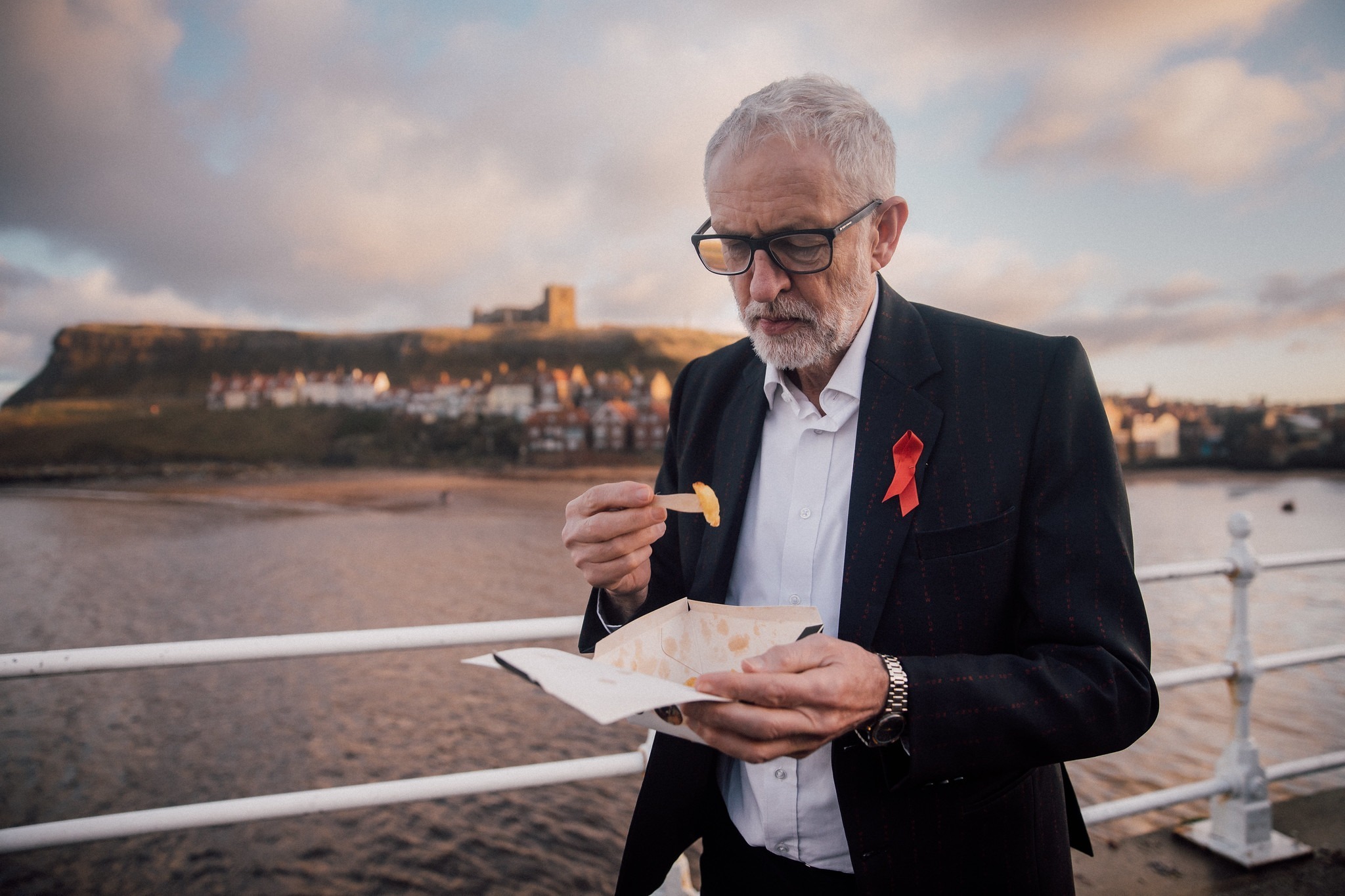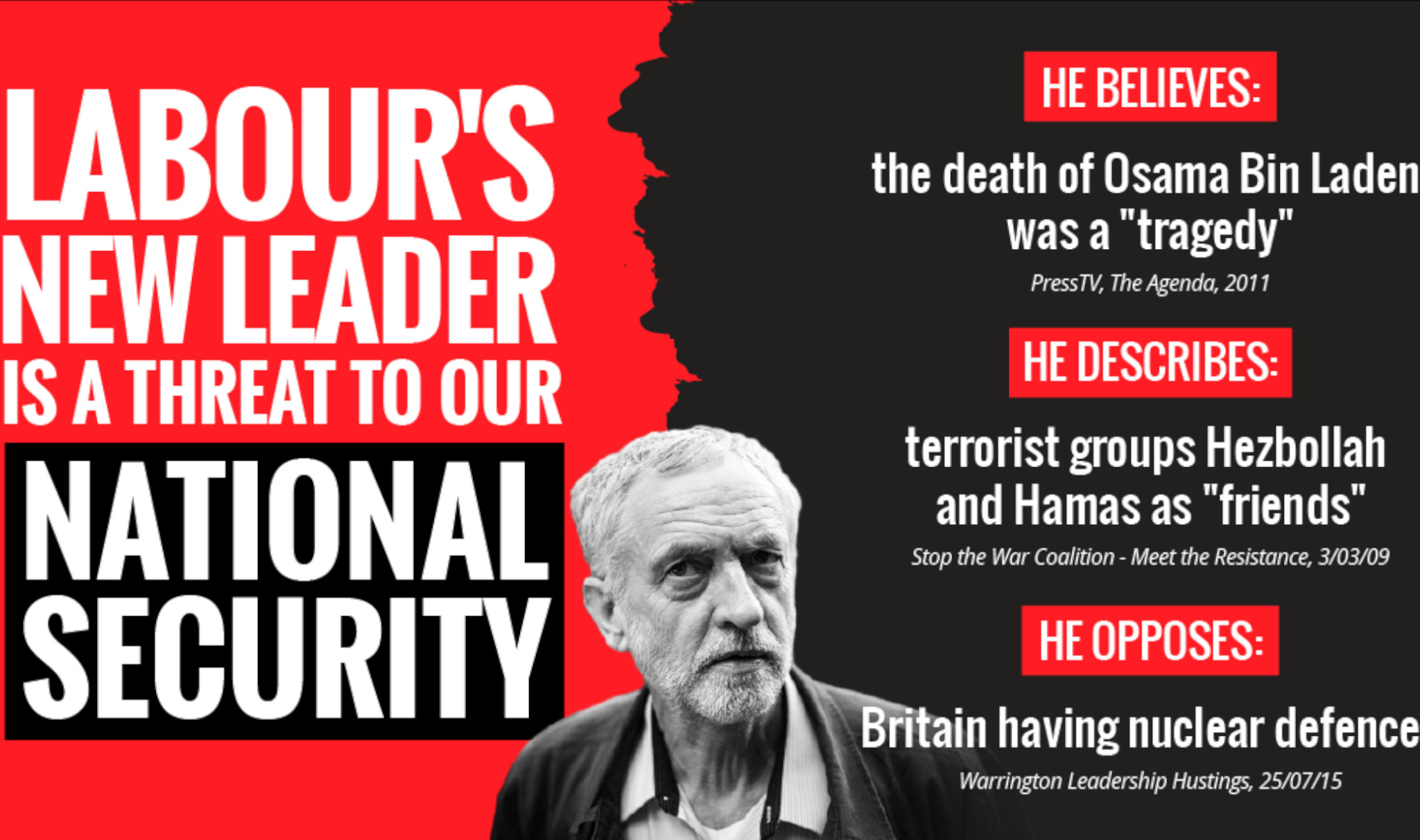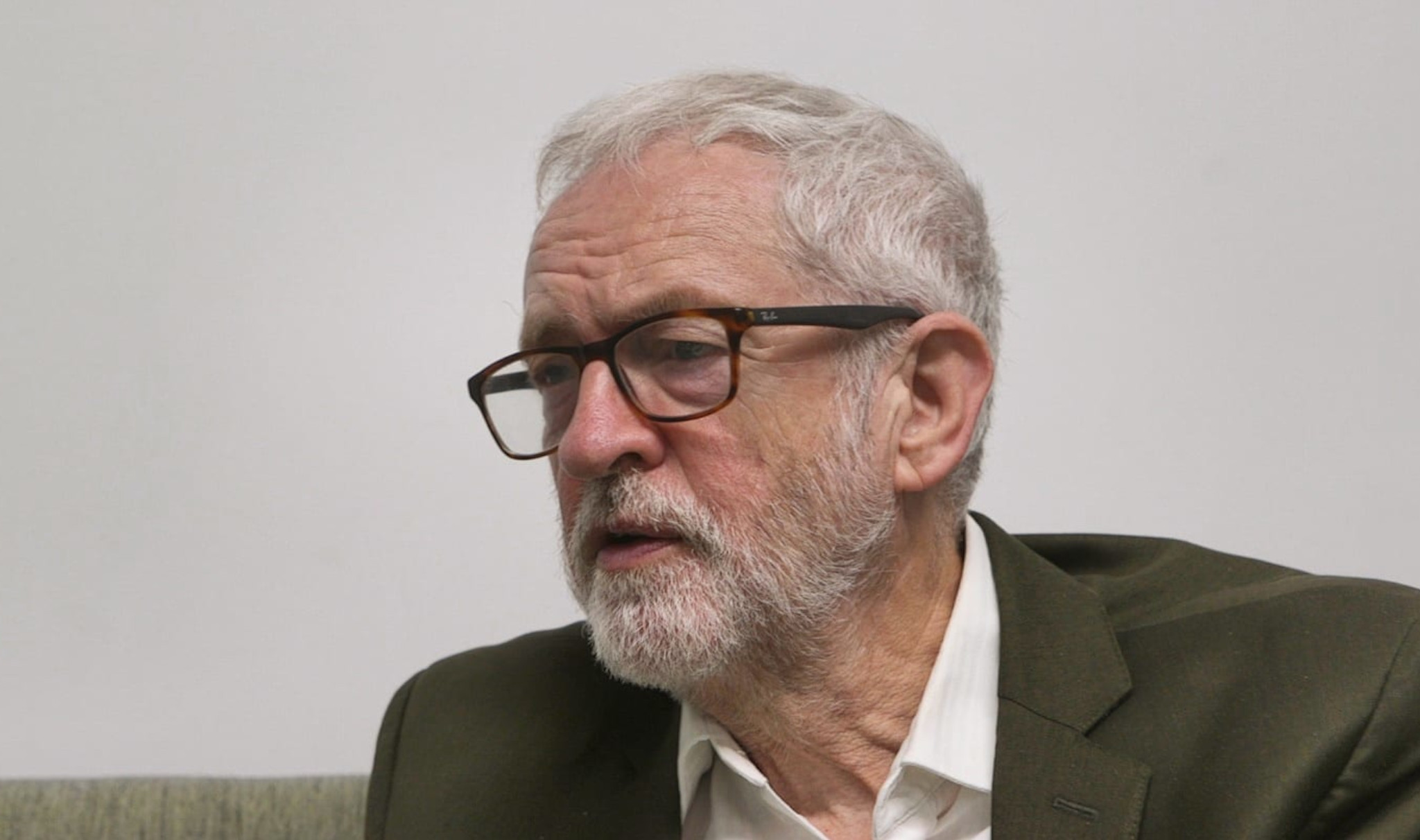UK
PETER OBORNE: EXPOSING MEDIA SMEARS AGAINST JEREMY CORBYN
The Guardian’s editor-in-chief Kath Viner. (Photo: Anna Gowthorpe via Alamy)
The Guardian, in common with many other British media organisations, apparently feels at liberty to write anything it likes about Jeremy Corbyn.
Here’s an example. In April last year its deputy political editor Jessica Elgot published a story describing how Corbyn’s team left their offices in chaos when Sir Keir Starmer took over as Labour leader.
“In one room there were assorted revolutionary flags including one from the Campaign for Nuclear Disarmament. In the next room there was a large bin full to the brim with shredded documents spilling on to the floor. In Corbyn’s office was a sleeping bag” Elgot wrote, citing anonymous sources.
The following day Alex Nunns, Corbyn’s speechwriter, responded with a series of photographs taken of the office as they were leaving. They show the offices stripped bare, but otherwise perfectly tidy.
Corbyn’s team complained to the Guardian, sending the photographs as proof. The newspaper then amended its article to include the line, in parenthesis; “Members of Corbyn’s team have disputed details in this account, saying the offices were left tidily.” It made no mention of the photographs, and offered no apology.
Declassified asked Elgot whether she had approached Corbyn’s team for comment or rebuttal before publication. She referred us to the Guardian’s press office, which refused to answer the question, saying “We have nothing to add.” Senior members of Jeremy Corbyn’s team pre-2019 told Declassified no checking call was made.
Demonising Diane
Here’s another example, from earlier this year. A story appeared in the Independent at a time when – amid a scandal over alleged comments by Conservative donor Frank Hester that Corbyn ally Diane Abbott “should be shot” – the media was beginning to scrutinise Starmer over why the investigation into alleged anti-semitic remarks by Abbott had dragged on so long.
Helpfully for Starmer, on March 15th, the Independent’s Archie Mitchell reported that Abbott had been “offered the Labour whip back but refused because she would have had to undergo antisemitism training.”
In this version of events, Starmer was not to blame for the delay; rather the cause was Abbott’s “refusal to compromise.” Quoting an anonymous shadow minister, the Independent reported that Abbott would not undertake the requested training, “and that is why this has been going on for 10 months and not 25 minutes.”
The Independent presented an MP “on the left of the party” as a second source, but this MP did not appear to add any additional information, and was quoted saying only: “I don’t know why she didn’t just do it.”
Later the same day Abbott posted on X that the report was: “A blatantly shoddy piece of journalism. I told the reporter that all the key ‘facts’ in his piece were false – on the record. Instead, he has led with the unattributable briefings from Labour party sources.”
Two-and-a-half months later, the BBC revealed the party’s investigation into Abbott had in fact concluded in December 2023, when Abbott was asked to undertake a “two-hour antisemitism awareness course.”
According to the BBC, “Abbot did the module in February, after which it is understood she received an email from Labour’s chief whip acknowledging she had completed it.” The BBC’s reporting was not denied by the Labour Party or by any of its representatives.
Declassified approached Archie Mitchell by email and text message for comment or rebuttal. He did not respond.
Condemn Hamas?
The Hamas atrocities of October 7th opened up a fresh line of attack. Rachel Cunliffe of the New Statesman accused Corbyn of “equivocating and deflecting on the rape, kidnap and murder of women and children.”
Corbyn’s office wrote to Cunliffe pointing out that Corbyn had said that “The horrific attacks on civilians in Israel were deplorable”, adding “We should condemn the use of violence against all civilians, Israeli and Palestinian.” She apologised.
The Jerusalem Post reported that Corbyn “has refused to condemn Hamas”, then deleted the claim after a complaint from his office. Declassified contacted the Jerusalem Post to ask why the paper did not offer an apology, but had received no response at the time of publication.
LBC presenter James O’Brien told a podcast that “Jeremy Corbyn was simply invited to condemn Hamas, or call them a terrorist group. He couldn’t do it.” After pressure from Corbyn’s office, the podcast issued a clarification.
Guido Fawkes published an article headlined “Jeremy Corbyn Disinvited From Socialist Conference Over Hamas Views”. Following a complaint from Corbyn’s office the headline changed and a false accusation about Corbyn’s supposed failure to condemn Hamas was removed.
On October 7th last year the Guardian – which seems unable to help itself when it comes to retailing dubious or false information about Corbyn – cited a pro-Palestinian tweet that the former Labour leader had posted a few days earlier as if it was a response to that day’s Hamas atrocities.
In December it reported that Corbyn had been “expelled from the [Labour] Party.” After a complaint from Corbyn’s office came the usual clarification.
Putin puppet?
Over the last week a longstanding smear against Corbyn has resurfaced regarding alleged support for Vladimir Putin. For example LBC presenter Iain Dale accused Corbyn of “sympathies with Russia.”
This claim that Corbyn supports Putin has frequently been made by the Tories – and unchallenged by Starmer’s Labour Party. The truth is that no modern politician has been more consistent or more prescient when it comes to Putin than Corbyn, as I laboriously demonstrated.
It serves a double purpose for the Tory establishment to point the finger at Corbyn over Russia. It distracts from its own long collaboration with Vladimir Putin and his oligarchs. Moreover Tories are determined to damage Starmer by association with Corbyn.
Meanwhile Starmer, lacking any strong narrative of his own, has made a strategic decision to define himself against Corbyn. An interesting case involves shadow cabinet minister Bridget Phillipson.
She told Kay Burley on Sky News in December last year that “Keir Starmer has taken tough action to turn around the prospects of the party, and that has included taking action around antisemitism that cast a very long and dark shadow over the party, was completely unacceptable and when Jeremy Corbyn refused to condemn that, action was taken again him.”
Phillipson’s claim that “Jeremy Corbyn refused to condemn that” was laden with ambiguity. At worst, it falsely implied that Corbyn had failed to condemn antisemitism inside Labour. To be fair she subsequently wrote to Corbyn saying that “the wording I used on Sky on Tuesday morning regarding you was imprecise, and I regret that.”
But when the Corbyn team demanded an on air retraction, Sky News refused. Last week Declassified twice wrote to Sky asking why. No reply.
The list goes on and on. Last March Labour strategist John McTernan apologised after calling Jeremy Corbyn an “antisemitic pensioner” on LBC. In the Independent Tanya Gold wrote about “Jeremy Corbyn’s anti-Jewish racism.” It was removed after Corbyn’s office complained.
The i issued a clarification after Ben Kentish wrote that Corbyn was “Barred from standing as a Labour candidate after refusing to apologise for his comments about antisemitism in the party.
Wild West
I lived in Corbyn’s Islington North constituency for 30 years and by any standards he was an immensely popular constituency MP. A Times leader on May 25th read as follows: “Owing to his longevity as a constituency MP Mr Corbyn may prevail on July 4th against a lesser known Labour candidate.”
The Times leader writer was misleading readers, either deliberately or through ignorance, by attributing his popularity to nothing more than long service. Some of these errors spring from ignorance. Others are defamatory.
Collectively they show that everything written in the papers about Jeremy Corbyn should be assumed false unless proved otherwise. It’s the wild west out there for the former Labour leader: any smear will do, however false and malicious, and Britain’s mainstream media is often ready to leap to attention.
But not always. Reporters can behave with integrity. A year ago The Times published a story, citing the usual anonymous sources from Starmer’s office.
“The hard left had got the band back together, said a breathless Labour official: Corbyn’s closest aides had reunited in the office of Lutfur Rahman, the mayor of Tower Hamlets, forming an ensemble cast of Team Starmer’s pantomime villains,” wrote Times columnist Patrick Maguire.
“All were apparently ensconced in Rahman’s office, planning the Corbyn comeback: an audacious run for London mayor against Labour’s Sadiq Khan,” Maguire wrote.
Unlike the Guardian, The Times checked out the story. Maguire concluded that: “With this political morality tale, asserted confidently as fact, there was only one problem: not a word of it was true.”
Here’s a suggestion the British political press corps might do well to consider. Next time a snake oil salesman connected with the Starmer machine tries to sell you a smear story on Corbyn, follow Maguire’s example and take the elementary precaution of checking the facts.





No comments:
Post a Comment